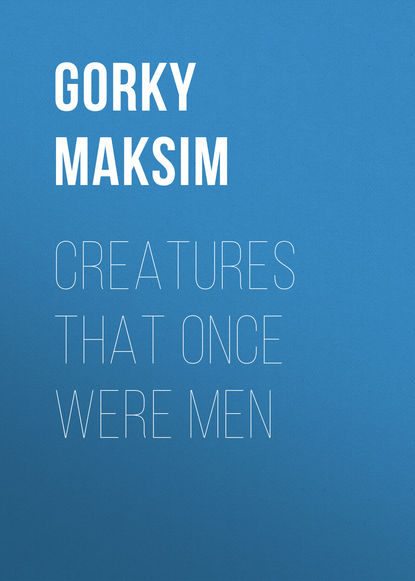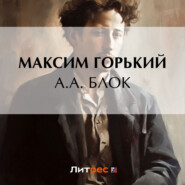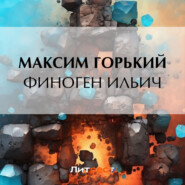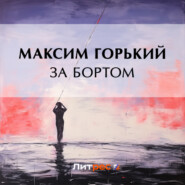По всем вопросам обращайтесь на: info@litportal.ru
(©) 2003-2025.
✖
Creatures That Once Were Men
Настройки чтения
Размер шрифта
Высота строк
Поля
"Oh! That happens to everyone," remarked Kuvalda; "but go on with your lies."
"She was thin, but she ate a lot, and even died from over-eating."
"You poisoned her, you hunchback!" said Abyedok, confidently.
"No, by God! It was from eating sturgeon," said Paltara Taras.
"But I say that you poisoned her!" declared Abyedok, decisively. It often happened, that having said something absolutely impossible and without proof, he kept on repeating it, beginning in a childish, capricious tone, and gradually raising his voice to a mad shriek.
The Deacon stood up for his friend. "No; he did not poison her. He had no reason to do so."
"But I say that he poisoned her!" swore Abyedok.
"Silence!" shouted the Captain, threateningly, becoming still angrier. He looked at his friends with his blinking eyes, and not discovering anything to further provoke his rage in their half-tipsy faces, he lowered his head, sat still for a little while, and then turned over on his back on the ground. Meteor was biting cucumbers. He took a cucumber in his hand without looking at it, put nearly half of it into his mouth, and bit it with his yellow teeth, so that the juice spurted out in all directions and ran over his cheeks. He did not seem to want to eat, but this process pleased him. Martyanoff sat motionless on the ground, like a statue, and looked in a dull manner at the half-vedro bottle, already getting empty. Abyedok lay on his belly and coughed, shaking all over his small body. The rest of the dark, silent figures sat and lay around in all sorts of positions, and their tatters made them look like untidy animals, created by some strange, uncouth deity to make a mockery of man.
"There once lived a lady in Suzdale,
A strange lady,
She fell into hysterics,
Most unpleasantly!"
sang the Deacon in low tones embracing Aleksei Maksimovitch, who was smiling kindly into his face.
Paltara Taras giggled voluptuously.
The night was approaching. High up in the sky the stars were shining … and on the mountain and in the town the lights of the lamps were appearing. The whistles of the steamers were heard all over the river, and the doors of Vaviloff's eating-house opened noisily. Two dark figures entered the courtyard, and one of them asked in a hoarse voice:
"Are you drinking?" And the other said in a jealous aside:
"Just see what devils they are!"
Then a hand stretched over the Deacon's head and took away the bottle, and the characteristic sound of vodki being poured into a glass was heard. Then they all protested loudly.
"Oh this is sad!" shouted the Deacon. "Krivoi, let us remember the ancients! Let us sing 'On the Banks of the Babylonian Rivers.'"
"But can he?" asked Simtsoff.
"He? He was a chorister in the Bishop's choir. Now then, Krivoi! … "On the r-i-v-e-r-s – " The Deacon's voice was loud and hoarse and cracked, but his friend sang in a shrill falsetto.
The dirty building loomed large in the darkness and seemed to be coming nearer, threatening the singers, who were arousing its dull echoes. The heavy, pompous clouds were floating in the sky over their heads. One of the "creatures that once were men" was snoring; the rest, not yet so drunk, ate and drank quietly or spoke to each other at long intervals. It was unusual for them to be in such low spirits during such a feast, with so much vodki. Somehow the drink tonight did not seem to have its usual exhilarating effect.
"Stop howling, you dogs!" … said the Captain to the singers, raising his head from the ground to listen. "Some one is passing … in a droshky…"
A droshky at such a time in the main street could not but attract general attention. Who would risk crossing the ditches between it and the town, and why? They all raised their heads and listened. In the silence of the night the wheels were distinctly heard. They came gradually nearer. A voice was heard asking roughly:
"Well, where then?"
Someone answered, "It must be there, that house."
"I shall not go any further."
"They are coming here!" shouted the Captain.
"The police!" someone whispered in great alarm.
"In a droshky! Fool!" said Martyanoff, quietly.
Kuvalda got up and went to the entrance.
"Is this a lodging-house?" asked someone, in a trembling voice.
"Yes. Belonging to Aristid Kuvalda …" said the Captain, roughly.
"Oh! Did a reporter, one Titoff, live here?"
"Aha! Have you brought him?"
"Yes …"
"Drunk?"
"Ill."
"That means he is very drunk. Ay, teacher! Now, then, get up!"
"Wait, I will help you … He is very ill … he has been with me for the last two days … Take him under the arms … The doctor has seen him. He is very bad."
Tyapa got up and walked to the entrance, but Abyedok laughed, and took another drink.
"Strike a light, there!" shouted the Captain.
Meteor went into the house and lighted the lamp. Then a thin line of light streamed out over the courtyard, and the Captain and another man managed to get the teacher into the dosshouse. His head was hanging on his breast, his feet trailed on the ground, and his arms hung limply as if broken. With Tyapa's help they placed him on a wide board. He was shivering all over. "We worked on the same paper … he is very unlucky… I said, 'Stay in my house, you are not in my way,' … but he begged me to send him 'home.' He was so excited about it that I brought him here, thinking it might do him good… Home! This is it, isn't it?"
"Do you suppose he has a home anywhere else?" asked Kuvalda, roughly, looking at his friend. "Tyapa, fetch me some cold water."
"I fancy I am of no more use," remarked the man in some confusion. The Captain looked at him critically. His clothes were rather shiny, and tightly buttoned up to his chin. His trousers were frayed, his hat almost yellow with age and crumpled like his lean and hungry face.
"No, you are not necessary! We have plenty like you here," said the Captain, turning away.
"Then, good-bye!" The man went to the door, and said quietly from there, "If anything happens … let me know in the publishing office… My name is Rijoff. I might write a short obituary… You see he was an active member of the Press."
"H'm, an obituary, you say? Twenty lines forty kopecks? I will do more than that. When he dies I will cut off one of his legs and send it to you. That will be much more profitable than an obituary. It will last you for three days… His legs are fat. You devoured him when he was alive. You may as well continue to do so after he is dead …"
The man sniffed strangely and disappeared. The Captain sat down on the wooden board beside the teacher, felt his forehead and breast with his hands and called "Philip!"
The sound re-echoed from the dirty walls of the dosshouse and died away.
"This is absurd, brother," said the Captain, quietly arranging the teacher's untidy hair with his hand. Then the Captain listened to his breathing, which was rapid and uneven, and looked at his sunken grey face. He sighed and looked upon him, knitting his eyebrows. The lamp was a bad one… The light was fitful, and dark shadows flickered on the dosshouse walls. The Captain watched them, scratching his beard. Tyapa returned bringing a vedro of water, and placing it by the teacher's head, he took his arm as if to raise him up.

















